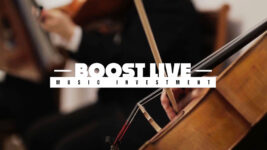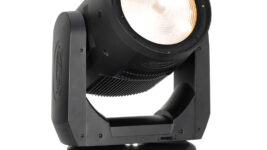LISTEN HERE
17 Feb 2025
DIVING INTO ’25
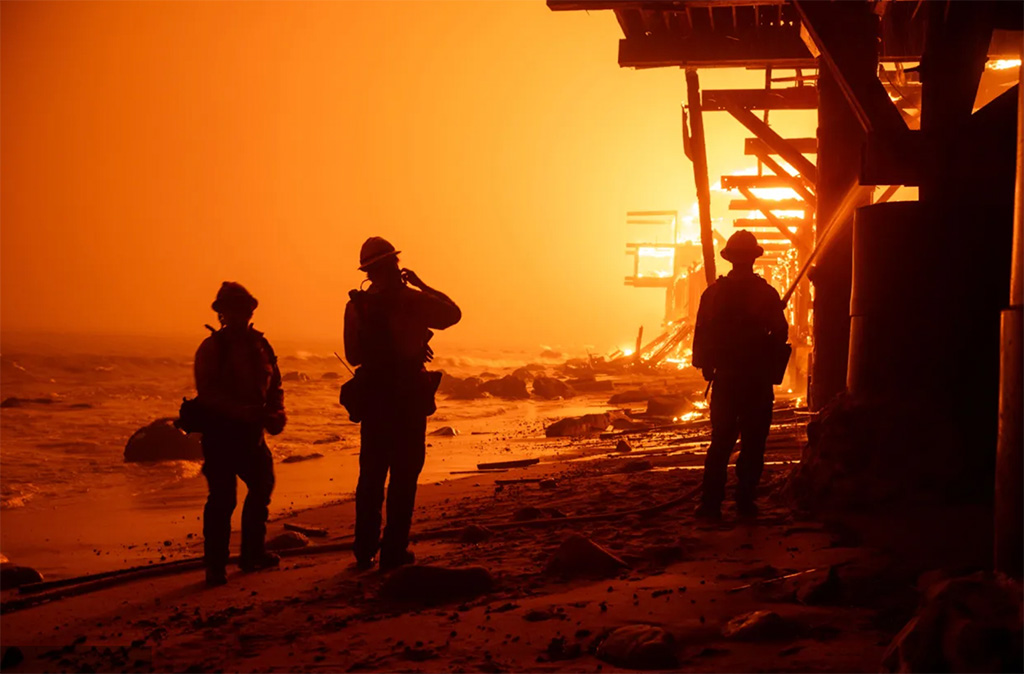
Subscribe to CX E-News
Like the real world, things in the tech world are changing fast, influencing our audio industry in ways we couldn’t have imagined possible a decade ago. But will these changes turn our industry upside down like some are suggesting? Indeed they might.
Way back in December ’24 I started mixing live bands again at the new Archies Creek Arts venue, which has arisen down on Victoria’s Bass Coast from the smouldering ashes of the Caravan Club. Controversially, I’m mixing from a new, more central position where I’m better able to hear the PA and make critical adjustments. The only downside is that I’m more conspicuous now than I was previously, which has prompted more punters to come up and talk to me after the show… all of them full of compliments of course! That’s all fine… I don’t mind chatting to people after a gig.
But yesterday I had a couple of well-known musicians (and their children) sitting right behind me, and after the gig we got talking.
What was fascinating to me was that none of them could quite believe how active I was throughout the gig. They simply had no idea how involved the mix process was or that there could be so many things changing over the course of a set. For good or ill they were impressed, not only by the sound on the day, but by the complexity of the task – in their words: “We were mesmerised by the process!”
I accepted their comments graciously, though I was slightly disturbed to learn just how conspicuous I had become to punters behind my FOH position – sound engineers aren’t particularly keen about being observed like that, in general.
But it was the response of one of the kids that really got me thinking. This little guy – Joe was his name – was so fascinated by my earlier mix antics that he talked to me for 45 minutes, wanting to know how everything worked, why all the faders flipped around all over the place, and how I knew what to do?
Clearly Joe had the potential to be one of Australia’s next generation of audio engineers. He was fascinated by seemingly everything about it, and his determination to sit in my seat after the show and fiddle with all the faders – which I let him do to his heart’s content – was one of the funniest things I’d seen in years.
Indeed, it was the only time I’ve ever seen it at a live show!
It made me reflect on the future of live sound, and the role Joe might one day play in our industry when he’s finally old enough to be looking for work. Would this moment turn out to be pivotal in his life? Did I spark Joe’s interest somehow; will he become a fantastic mix engineer at some point, and might he even be interviewed in an audio magazine years from now, where he’ll recount the moment when he first sat behind a console at a gig? Who knows…
“But then I had another more disturbing thought.”
Will there be a job like ‘FOH engineer’ in the future for someone like this eager nine-year old, or will the whole thing be run by robots by then that have used AI to learn from our human experiences and choices? I sincerely hope not, but it’s not beyond the scope of technological advancement, sadly.
It even crossed my mind on the day that perhaps there was little point trying to explain to Joe how the console worked, or even the basics of what this mixing caper was all about, fearing that my ‘hands-on’ creative approach to live mixing might be irrelevant by the time Joe’s ready to join our ranks; the role long ago having been usurped by robots. Worse than that, I was struck by the depressing thought that my accumulated knowledge around sound mixing, which now spans 40 years, would not be handed over to future generations of budding engineers like Joe, but more insidiously ‘acquired’ – without my consent – by a company that profits from my experience (and that of others like me), while simultaneously removing Joe’s role altogether. That’s not advancing our industry, it’s hijacking it – theft in short.
It’s a bleak, Orwellian concept perhaps, but not unrealistic either. Indeed, it’s already happening, and not just to our industry, but every industry.
What disturbs me most about the audio business as we dive into ’25, and perhaps the world more generally, is that we seem content to sit back and let technology – and the companies that peddle it – set the agenda, direction and future of our workplace (and that of future generations), fully aware that these companies barely give our welfare a second thought and actually have no idea what impact their technology might have on us all.
And yet we seem happy for AI, as an example, to waltz into our chemistry lab and start mixing molecules together at a furious pace just to see what happens… will it cause a devastating explosion?
Who knows…
Call that an agenda, or future planning? More like malicious malpractice, if you ask me.
I don’t think some of the major companies in our audio industry frankly give a damn about future generations of artists, practitioners and technicians, nor do I see that any of them can even begin to visualise the impacts of their new technologies on our industry.
They’re going in blind, pretending to have a clear vision of the future, and we’re gullible enough to hand them the reins…
An Unpredictable Future
Fire is clearly the most relevant (and topical) metaphor here. We are sparking a fire in our industry, the size, direction and consequences of which cannot be predicted, and it astonishes me that so many of us seem content to let it loose in our industry seemingly without question.
I fear that once AI technology gets going, we will have neither the nouse nor the capacity to manage it, and if the need arises, stop it. We seem to have about as much control over the future path of our audio industry right now as we do over the path of an out-of-control bushfire. I’m not sure why that is. As humans, it’s as if we seem determined to remain perpetually naïve to things that threaten us until such time as they’re bearing down on us directly.
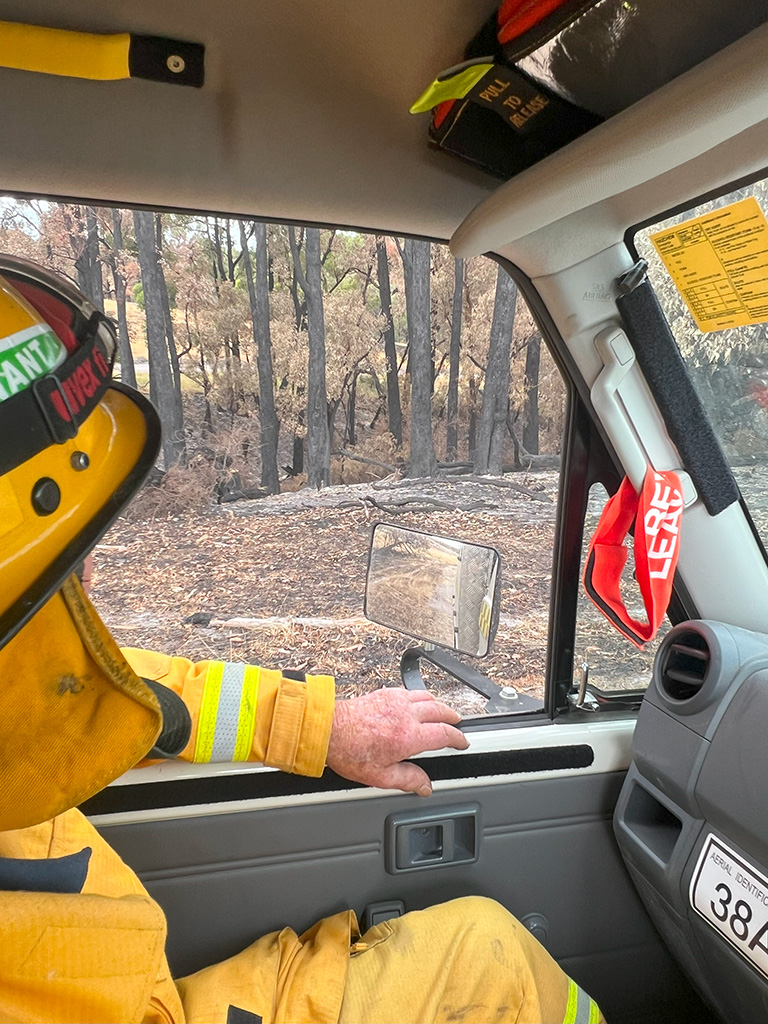
I know using fire as a metaphor here might ruffle a few feathers amongst the CX readership right now, especially some overseas in California in particular, who I know are suffering amid an almost inconceivably catastrophic wildfire event. I don’t mean to be insensitive. On the contrary, I empathise directly. I am a volunteer firefighter myself, a captain of my local brigade, and I’ve spent many days already this summer fighting fires in my own area in Victoria. Further to that, I once lived in Los Angeles, my wife is Californian, and my kids are dual Australian-US citizens. As a family we have been glued to our screens and phones, horrified by the things we’ve seen; concerned for family and friends, and the countless colleagues in our audio industry as well as the wider firefighting community.
So, if you’ll just indulge my tangential thinking for a moment longer: to the firefighters in California – one or two of whom might stumble across this article at some point – I would like to express my concern on behalf of every firefighter over here in my own district. We are all watching the unfolding events in amazement and concerned for your safety. The sheer scale of the devastation and the awesomeness of the task that confronts you and the city of Los Angeles right now must seem insurmountable.
For colleagues in the audio industry, some of whom have lost everything, our hearts go out to you too. Disasters like this put our work into stark perspective, and right now there are clearly far more pressing concerns than the perceived health of our audio industry. Like the city of Los Angeles, which is pulling together remarkably as a community, I’m sure the global audio industry will be quick to respond to the crisis that some of our colleagues in the US are facing, and help will be come from all four corners.
It’s what humans do in a crisis – they help one another. I hope 2025 continues to build on the global comradery this extraordinary disaster has so far generated.
Andy Stewart owns and operates The Mill in the hills of Bass Coast Shire, Victoria, and he’s also the Editorial Director of Mutech Media. Check it out here: mutech.media
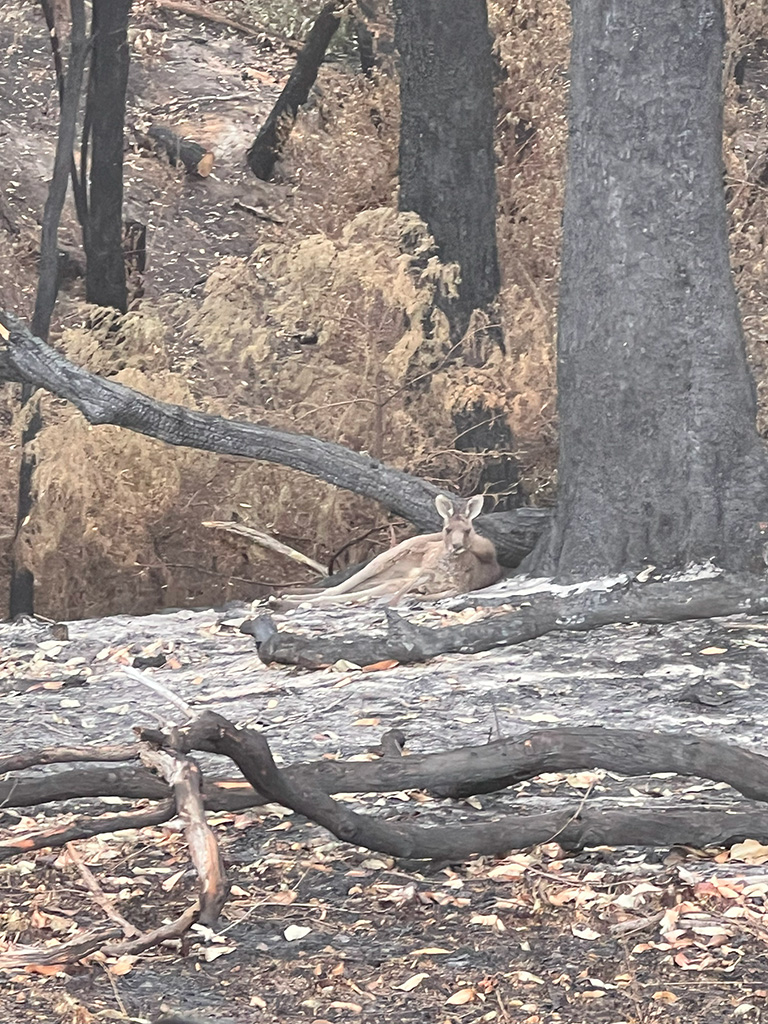
Subscribe
Published monthly since 1991, our famous AV industry magazine is free for download or pay for print. Subscribers also receive CX News, our free weekly email with the latest industry news and jobs.

